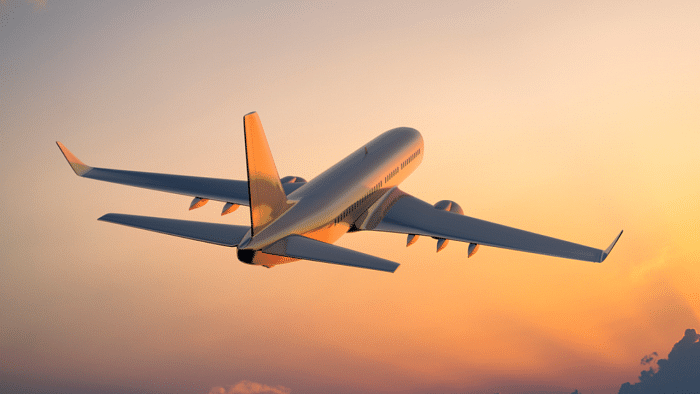
With crude oil prices rising every day amid the Russian invasion of Ukraine, jet fuel prices are also rising.
However, Indian airlines will find it difficult to pass on these costs to passengers, as per a report by Mint.
The cost pressure comes at a time when passenger traffic has been making a recovery, after the pandemic.
With Indian passengers being price-sensitive and competition from road and rail transport, airlines will find it difficult to raise prices steeply, a source told the publication.
“At the same time, demand is just recovering, so it may be difficult to pass on the costs entirely," the source added.
Jet fuel prices are revised fortnightly and is currently at an all-time high in India. On March 1, as per a price notification, it was hiked by 3.22 per cent to Rs 93,530.66 per kilolitres.
Jet fuel is derived from crude oil, and on Thursday, Brent crude traded as high as $123.38 a barrel, up 84 per cent annually.
Prior to the pandemic, the daily domestic air passengers were at 400,000 and as per a Ministry of Civil Aviation report on March 2, India recorded 308,885 arriving domestic air passengers.
With the fast pace of vaccination and gradual curb relaxations, credit rating agency ICRA expects domestic air passengers to have 50-55 per cent growth in FY22.
“The domestic aviation industry will report a net loss of about Rs 25,000 crore- Rs 26,000 crore during FY 2022 amid a sharp rise in crude oil prices and a recovery hindered by a recent wave of the pandemic,” ICRA said in a report on Thursday.
“Accordingly, it is estimated that the industry will require additional funding in the range of Rs 20,000-22,000 crore over FY2022 to FY2024," the report added.
In a report released by ICICI Securities, it was stated that when fuel prices are low, airlines enjoy higher gross spreads (revenues - fuel costs) and the rise in fuel prices cannot be completely passed through higher fares.
“The ability to pass on the increase in fuel prices will also be dependent on overall supply-demand (situation)," it added.
Airlines could also opt for fuel-hedging to protect their bottomlines from fluctuating oil prices.
Check out DH's latest videos: